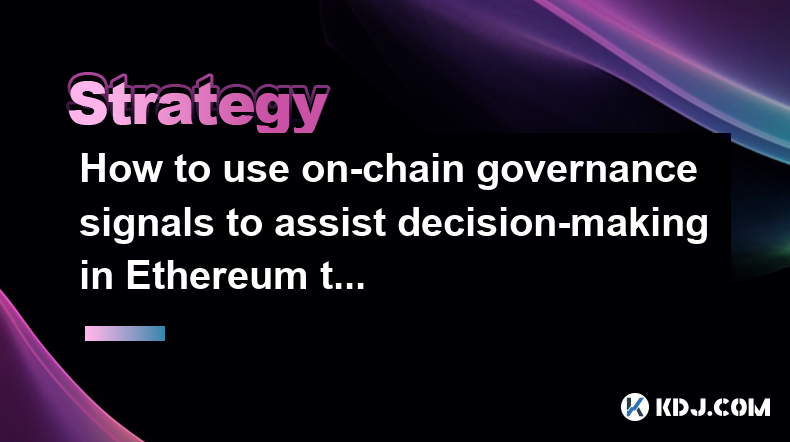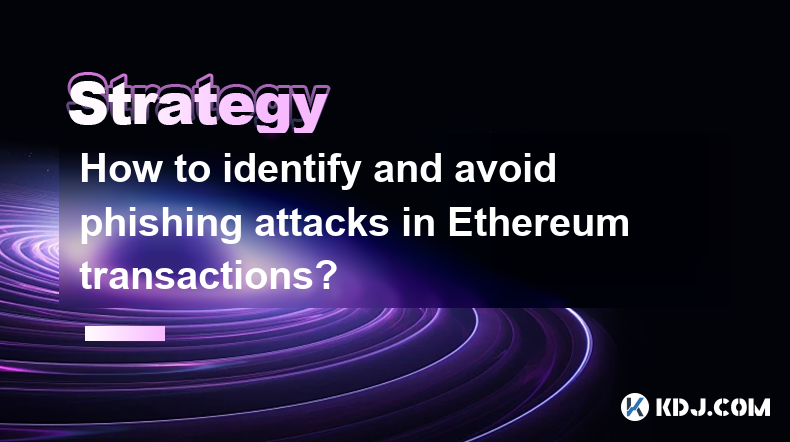-
 Bitcoin
Bitcoin $91,518.7898
-4.46% -
 Ethereum
Ethereum $2,486.1604
-8.96% -
 Tether USDt
Tether USDt $1.0000
-0.03% -
 XRP
XRP $2.2686
-8.99% -
 BNB
BNB $608.9389
-5.43% -
 Solana
Solana $140.3791
-12.56% -
 USDC
USDC $1.0000
0.00% -
 Dogecoin
Dogecoin $0.2110
-9.45% -
 Cardano
Cardano $0.6803
-8.72% -
 TRON
TRON $0.2357
-3.55% -
 Chainlink
Chainlink $14.9554
-11.54% -
 Stellar
Stellar $0.2950
-8.51% -
 Avalanche
Avalanche $21.6769
-10.16% -
 Sui
Sui $2.8167
-15.86% -
 Toncoin
Toncoin $3.4679
-7.84% -
 Litecoin
Litecoin $113.1664
-9.32% -
 UNUS SED LEO
UNUS SED LEO $8.8017
-9.91% -
 Shiba Inu
Shiba Inu $0.0...01377
-8.05% -
 Hedera
Hedera $0.1909
-6.96% -
 MANTRA
MANTRA $7.7669
-8.33% -
 Polkadot
Polkadot $4.3696
-9.36% -
 Hyperliquid
Hyperliquid $19.2277
-12.61% -
 Ethena USDe
Ethena USDe $0.9999
-0.02% -
 Bitcoin Cash
Bitcoin Cash $290.6446
-8.85% -
 Bitget Token
Bitget Token $4.5834
-7.83% -
 Dai
Dai $0.9998
-0.02% -
 Uniswap
Uniswap $7.8223
-10.46% -
 Monero
Monero $228.1069
-2.97% -
 NEAR Protocol
NEAR Protocol $2.9626
-12.13% -
 Pepe
Pepe $0.0...07898
-13.04%
How to invest after the RMB depreciation
To mitigate risks during RMB depreciation, diversify your portfolio across multiple asset classes, including cryptocurrencies with strong fundamentals like Bitcoin and Ethereum, and store these assets securely in a hardware wallet while monitoring market trends and seeking professional guidance if needed.
Jan 09, 2025 at 01:48 am

Key Points:
- Diversify your portfolio across multiple asset classes, including cryptocurrencies, stocks, bonds, real estate, and commodities.
- Choose cryptocurrencies with strong fundamentals, such as Bitcoin, Ethereum, and stablecoins.
- Use a hardware wallet to securely store your cryptocurrency assets.
- Monitor market trends and make adjustments to your investment strategy as needed.
- Consult with a financial advisor if you have any uncertainties or require personalized guidance.
How to Invest After the RMB Depreciation
The recent depreciation of the Chinese yuan (RMB) has led to increased interest in alternative investment options, including cryptocurrencies. Here's a comprehensive guide on how to invest in cryptocurrencies in the wake of RMB depreciation:
1. Diversify Your Portfolio
Diversification is a fundamental principle of investing. Don't put all your eggs in one basket. Spread your investments across multiple asset classes, such as:
- Cryptocurrencies: Bitcoin, Ethereum, Litecoin, Ripple, etc.
- Stocks: Blue-chip stocks, growth stocks, dividend stocks, etc.
- Bonds: Government bonds, corporate bonds, municipal bonds, etc.
- Real estate: Residential properties, commercial properties, land, etc.
- Commodities: Gold, silver, oil, wheat, etc.
By diversifying, you reduce your overall risk and increase your chances of long-term success.
2. Choose Strong Cryptocurrencies
Not all cryptocurrencies are created equal. Choose digital assets with strong fundamentals, such as:
- Bitcoin (BTC): The original cryptocurrency, with a proven track record and strong community support.
- Ethereum (ETH): A popular platform for decentralized applications and smart contracts.
- Stablecoins: Cryptocurrencies pegged to the value of fiat currencies, such as the US dollar or euro, providing stability in a volatile market.
Other promising cryptocurrencies include Binance Coin, Cardano, Polygon, and Solana.
3. Store Your Assets Safely
Once you've purchased your cryptocurrencies, it's crucial to store them securely to protect against hacking and theft. Use a hardware wallet, which is a physical device that keeps your private keys offline, away from potential cyber threats.
Popular hardware wallets include:
- Trezor
- Ledger
- SafePal
- Arculus
- CoolWallet
4. Monitor Market Trends
The cryptocurrency market is highly volatile, so it's essential to monitor trends and make adjustments to your investment strategy as needed. Track market news, price charts, and technical indicators to stay informed about market conditions.
Also, consider using trading bots to automate your trading strategies and minimize emotional decision-making.
5. Consult with a Financial Advisor
If you're new to investing or unsure how to navigate the cryptocurrency market, consult with a qualified financial advisor. They can provide personalized guidance and help you develop an investment strategy tailored to your specific needs and risk tolerance.
FAQs:
Q: Can I use RMB to buy cryptocurrencies?
A: Yes, there are exchanges that allow you to buy cryptocurrencies using RMB. However, it's important to note that cryptocurrency trading platforms in China are strictly regulated, and there may be restrictions on foreign currency exchange.
Q: Is it risky to invest in cryptocurrencies during a period of RMB depreciation?
A: All investments carry some level of risk. The cryptocurrency market is known for its volatility, and it's possible to lose money if the market declines. However, by following the guidelines outlined in this article, you can mitigate your risks and increase your chances of success.
Q: How do I know when to buy and sell cryptocurrencies?
A: There's no single formula for determining the best time to buy and sell cryptocurrencies. Market timing is a complex skill that takes time and practice to develop. Use a combination of technical analysis, market news, and your own judgment to make informed trading decisions.
Q: Is it legal to trade cryptocurrencies in China?
A: The legality of cryptocurrency trading in China varies over time. The government has taken a tough stance on cryptocurrency trading in the past, but it has recently hinted at a more relaxed approach. It's important to stay updated on the latest regulatory developments before engaging in any cryptocurrency trading activities in China.
Disclaimer:info@kdj.com
The information provided is not trading advice. kdj.com does not assume any responsibility for any investments made based on the information provided in this article. Cryptocurrencies are highly volatile and it is highly recommended that you invest with caution after thorough research!
If you believe that the content used on this website infringes your copyright, please contact us immediately (info@kdj.com) and we will delete it promptly.
- The Best Cryptos to Buy Right Now: Arctic Pablo Coin, Official Melania Meme, and Bonk Lead the Pack
- 2025-02-25 14:30:29
- The Best Meme Coins to Buy Now: Arctic Pablo Coin (APC), Popcat, Peanut the Squirrel, and OFFICIAL TRUMP
- 2025-02-25 14:30:29
- BitMart Research: BNB Chain's Strategic Initiatives and Growing Influence in the MEME Sector
- 2025-02-25 14:30:29
- Sam Bankman-Fried Tweets From Prison, Briefly Spiking FTX Token FTT
- 2025-02-25 14:30:29
- Can Ripple’s XRP Overcome Market Forces and Rebound?
- 2025-02-25 14:30:29
- 1965 Chevrolet Corvair Corsa Turbo
- 2025-02-25 14:30:29
Related knowledge

How to utilize long-short hedging strategies in Ethereum trading?
Feb 25,2025 at 09:07am
Key Points:Understand the concept of long-short hedgingChoose appropriate assets for long and short positionsManage risk and leverageMonitor positions and adjust as neededExplore advanced strategiesHow to Utilize Long-Short Hedging Strategies in Ethereum Trading:1. Comprehend Long-Short HedgingLong-short hedging involves simultaneously holding opposite ...

How to use on-chain governance signals to assist decision-making in Ethereum transactions?
Feb 25,2025 at 07:06am
Key PointsOn-chain governance signals allow individuals to participate and influence the decision-making process of Ethereum-related projects and protocols.These signals help users make more informed decisions, especially when performing complex transactions involving Ethereum or dealing with advanced protocols like decentralized exchanges.Monitoring on...

How to deal with the risk of smart contract vulnerabilities in Ethereum transactions?
Feb 25,2025 at 02:25pm
Key PointsUnderstand the nature of smart contract vulnerabilities and their potential impact on Ethereum transactions.Implement best practices for smart contract development to mitigate vulnerabilities.Utilize tools and services for scanning and auditing smart contracts.Monitor smart contract activity and transactions for suspicious or malicious behavio...

How to identify and avoid phishing attacks in Ethereum transactions?
Feb 25,2025 at 03:13pm
Key Points:Understanding phishing techniques and their impact on Ethereum transactionsRecognizing the common red flags associated with phishing attacksImplementing effective measures to protect against phishing attemptsReporting and addressing phishing scams to ensure community safetyContent:1. Understanding Phishing Techniques in Ethereum TransactionsP...

How to deal with the delay caused by network congestion in Ethereum transactions?
Feb 25,2025 at 12:42pm
Key Points:Understanding Network Congestion in EthereumStrategies for Minimizing Transaction DelaysAdvanced Techniques for Expediting TransactionsUnderstanding Network Congestion in EthereumEthereum processes transactions sequentially, leading to congestion when transaction volume exceeds network capacity.Network congestion is caused by an influx of tra...

How to use algorithmic trading to improve efficiency in Ethereum transactions?
Feb 25,2025 at 03:18pm
How to Use Algorithmic Trading to Improve Efficiency in Ethereum Transactions: A Comprehensive GuideKey Points:Understand the benefits of algorithmic trading for Ethereum transactions.Identify the types of algorithmic trading strategies available.Learn how to implement automated trading bots.Utilize technical indicators to enhance trading efficiency.Mon...

How to utilize long-short hedging strategies in Ethereum trading?
Feb 25,2025 at 09:07am
Key Points:Understand the concept of long-short hedgingChoose appropriate assets for long and short positionsManage risk and leverageMonitor positions and adjust as neededExplore advanced strategiesHow to Utilize Long-Short Hedging Strategies in Ethereum Trading:1. Comprehend Long-Short HedgingLong-short hedging involves simultaneously holding opposite ...

How to use on-chain governance signals to assist decision-making in Ethereum transactions?
Feb 25,2025 at 07:06am
Key PointsOn-chain governance signals allow individuals to participate and influence the decision-making process of Ethereum-related projects and protocols.These signals help users make more informed decisions, especially when performing complex transactions involving Ethereum or dealing with advanced protocols like decentralized exchanges.Monitoring on...

How to deal with the risk of smart contract vulnerabilities in Ethereum transactions?
Feb 25,2025 at 02:25pm
Key PointsUnderstand the nature of smart contract vulnerabilities and their potential impact on Ethereum transactions.Implement best practices for smart contract development to mitigate vulnerabilities.Utilize tools and services for scanning and auditing smart contracts.Monitor smart contract activity and transactions for suspicious or malicious behavio...

How to identify and avoid phishing attacks in Ethereum transactions?
Feb 25,2025 at 03:13pm
Key Points:Understanding phishing techniques and their impact on Ethereum transactionsRecognizing the common red flags associated with phishing attacksImplementing effective measures to protect against phishing attemptsReporting and addressing phishing scams to ensure community safetyContent:1. Understanding Phishing Techniques in Ethereum TransactionsP...

How to deal with the delay caused by network congestion in Ethereum transactions?
Feb 25,2025 at 12:42pm
Key Points:Understanding Network Congestion in EthereumStrategies for Minimizing Transaction DelaysAdvanced Techniques for Expediting TransactionsUnderstanding Network Congestion in EthereumEthereum processes transactions sequentially, leading to congestion when transaction volume exceeds network capacity.Network congestion is caused by an influx of tra...

How to use algorithmic trading to improve efficiency in Ethereum transactions?
Feb 25,2025 at 03:18pm
How to Use Algorithmic Trading to Improve Efficiency in Ethereum Transactions: A Comprehensive GuideKey Points:Understand the benefits of algorithmic trading for Ethereum transactions.Identify the types of algorithmic trading strategies available.Learn how to implement automated trading bots.Utilize technical indicators to enhance trading efficiency.Mon...
See all articles

















































































